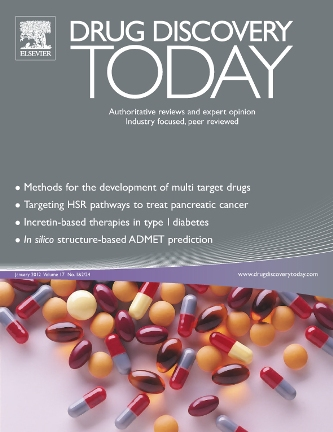临床前研究中的人工智能:增强数字双胞胎和器官芯片以减少动物实验
IF 6.5
2区 医学
Q1 PHARMACOLOGY & PHARMACY
引用次数: 0
摘要
人工智能(AI)正在重塑临床前药物研究,为传统的动物实验提供了创新的替代方案。先进的技术,包括机器学习(ML)、深度学习(DL)、人工智能驱动的数字双胞胎(dt)和人工智能增强的器官芯片(OoC)平台,能够精确模拟复杂的生物系统。人工智能在克服dt和OoC的局限性,提高其预测能力和可扩展性方面发挥着关键作用。这些技术促进了早期、可靠的药物安全性和有效性评估,解决了伦理问题,降低了成本,加速了药物开发,同时坚持了3r原则(替代、减少、改进)。通过将人工智能与这些先进的模型相结合,临床前研究可以提高药物发现的准确性和效率。本综述探讨了人工智能在临床前研究中的变革性影响,重点介绍了人工智能的进展、挑战,以及将人工智能建立为道德和高效药物发现的基石所需的关键步骤。本文章由计算机程序翻译,如有差异,请以英文原文为准。
Artificial intelligence in preclinical research: enhancing digital twins and organ-on-chip to reduce animal testing
Artificial intelligence (AI) is reshaping preclinical drug research offering innovative alternatives to traditional animal testing. Advanced techniques, including machine learning (ML), deep learning (DL), AI-powered digital twins (DTs), and AI-enhanced organ-on-a-chip (OoC) platforms, enable precise simulations of complex biological systems. AI plays a critical role in overcoming the limitations of DTs and OoC, improving their predictive power and scalability. These technologies facilitate early-stage, reliable evaluations of drug safety and efficacy, addressing ethical concerns, reducing costs, and accelerating drug development while adhering to the 3Rs principle (Replace, Reduce, Refine). By integrating AI with these advanced models, preclinical research can achieve greater accuracy and efficiency in drug discovery. This review examines the transformative impact of AI in preclinical research, highlighting its advancements, challenges, and the critical steps needed to establish AI as a cornerstone of ethical and efficient drug discovery.
求助全文
通过发布文献求助,成功后即可免费获取论文全文。
去求助
来源期刊

Drug Discovery Today
医学-药学
CiteScore
14.80
自引率
2.70%
发文量
293
审稿时长
6 months
期刊介绍:
Drug Discovery Today delivers informed and highly current reviews for the discovery community. The magazine addresses not only the rapid scientific developments in drug discovery associated technologies but also the management, commercial and regulatory issues that increasingly play a part in how R&D is planned, structured and executed.
Features include comment by international experts, news and analysis of important developments, reviews of key scientific and strategic issues, overviews of recent progress in specific therapeutic areas and conference reports.
 求助内容:
求助内容: 应助结果提醒方式:
应助结果提醒方式:


